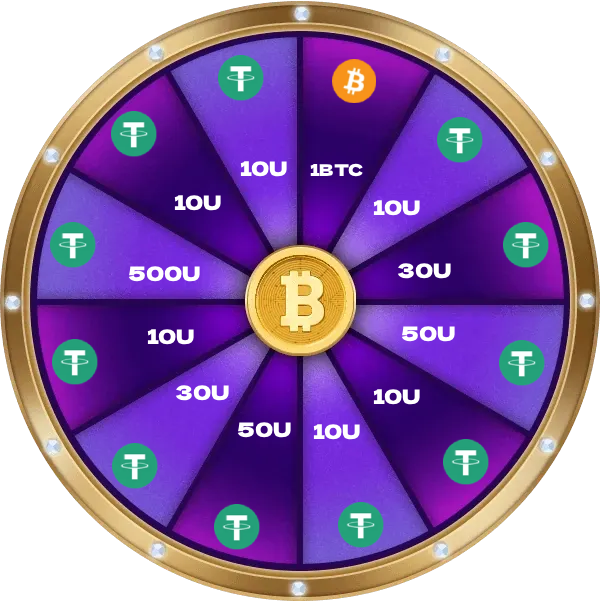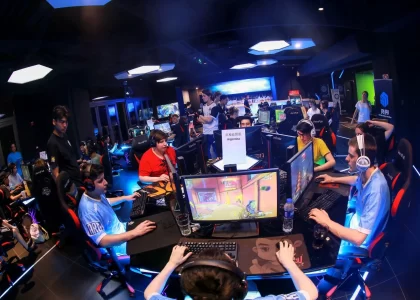The concept of betting has been around for centuries, but esports betting is a relatively recent phenomenon that has evolved alongside the growth of competitive video gaming. Esports, or electronic sports, refers to organized competitive gaming, and its origins can be traced back to the late 20th century.
The first recorded esports tournament took place in 1972 at Stanford University, where students competed in the game “Spacewar.” However, it wasn’t until the 1990s that esports began to gain significant traction, with games like “Doom,” “StarCraft,” and “Quake” becoming popular among gamers. As these games garnered larger audiences, the idea of betting on the outcomes naturally followed.

Rise of Online Gaming and Betting
The rise of online gaming in the early 2000s brought about a new era for esports. With the advent of high-speed internet, multiplayer online games like “Counter-Strike,” “Warcraft III,” and “Dota” gained popularity, leading to the establishment of professional gaming leagues and tournaments.
This period also saw the emergence of the first online bookmakers that began offering bets on esports events. Initially, esports betting was limited to small, niche websites catering to hardcore gaming fans. These early esports bookmakers primarily focused on popular games like “Counter-Strike” and “StarCraft,” where the competitive scenes were well-established.
Growth and Mainstream Acceptance
As esports continued to grow in popularity, the betting industry began to take notice. Major online betting platforms, traditionally focused on sports like football and horse racing, started to include esports in their offerings. This was a significant step towards the mainstream acceptance of esports betting.
The launch of platforms like Pinnacle in the early 2000s, which offered dedicated esports betting markets, marked the beginning of a new era. Pinnacle was one of the first major bookmakers to recognize the potential of esports betting and invested in creating specialized markets for games like “Dota 2,” “League of Legends,” and “StarCraft II.”
Esports Betting in the Modern Era
In the 2010s, esports betting experienced exponential growth, driven by the global popularity of games like “Dota 2,” “League of Legends,” and “Counter-Strike: Global Offensive.” The introduction of major esports tournaments with large prize pools, such as The International for Dota 2 and the League of Legends World Championship, further fueled the interest in betting.
During this time, dedicated esports betting platforms like GG.BET, Betway Esports, and Unikrn emerged, offering extensive coverage of esports events and innovative betting options, such as live betting and in-play markets. These platforms catered specifically to the esports audience, providing a tailored experience for bettors.
As the esports industry grew, so did the betting opportunities. Major traditional bookmakers started to offer esports markets alongside conventional sports, marking a significant shift in the betting landscape. Platforms like Betway and Pinnacle were among the first to see the potential in esports betting, offering odds on major tournaments and leagues.
Esports betting gained further legitimacy as mainstream media and major sponsors began to take notice. The inclusion of esports in major betting platforms provided bettors with access to a wide array of markets, from simple match outcomes to more complex bets like first blood, map winners, and total kills.
The modern era has seen the introduction of innovative betting markets that cater specifically to the unique nature of esports. In traditional sports, bets might be placed on outcomes like goals or touchdowns. In esports, however, the possibilities are endless. Bettors can wager on in-game events like the first team to destroy a tower in “Dota 2” or the player to achieve the most kills in a “CS” match.
Live betting, also known as in-play betting, has become particularly popular in esports. This allows bettors to place wagers in real-time as the match unfolds, adding a layer of excitement and engagement. The unpredictability of esports matches, where a single play can turn the tide, makes live betting especially thrilling.

Dedicated esports betting platforms have emerged to meet the demand from fans who want a more specialized experience. Websites like GG.BET, Unikrn, and Arcanebet focus exclusively on esports, offering a range of betting options across various games. These platforms often feature detailed statistics, expert analysis, and live streaming to help bettors make informed decisions.
The integration of cryptocurrencies into esports betting has also gained traction, with some platforms accepting Bitcoin and other digital currencies. This has appealed to tech-savvy gamers who prefer the anonymity and security that cryptocurrencies offer.
As esports betting has grown, so has the need for regulation. Governments and gaming authorities have started to establish guidelines to ensure fair play and protect consumers. Licenses from bodies like the Malta Gaming Authority and the Curaçao eGaming License have become standard for reputable esports betting sites.
To enhance security, many platforms employ advanced encryption technologies and robust verification processes. This ensures that bettors’ information is protected and that the betting experience is both safe and fair.
The rise of esports betting has had a significant impact on the esports industry itself. The influx of sponsorships and partnerships from betting companies has provided teams and tournaments with additional funding, helping to grow the scene. Many esports teams now have betting companies as their primary sponsors, with logos prominently displayed on jerseys and during broadcasts.
However, this has also raised concerns about the potential for match-fixing and the influence of gambling on young audiences. The esports community and regulators continue to work together to address these issues, promoting responsible betting and implementing measures to prevent unethical practices.
The future of esports betting looks bright, with continued growth expected as the esports industry expands globally. New technologies like virtual reality (VR) and augmented reality (AR) could revolutionize how fans experience and bet on esports, offering immersive environments that bring the action closer than ever before.
As esports continue to gain mainstream acceptance, the integration of esports betting into traditional sports platforms will likely deepen, blurring the lines between conventional sports and competitive gaming. The modern era of esports betting is just the beginning, with many exciting developments on the horizon.
Integration of Technology and Innovation
The esports betting industry has continued to evolve with advancements in technology. The integration of live streaming services like Twitch and YouTube Gaming allowed bettors to watch events in real-time while placing bets, enhancing the overall experience. Additionally, the use of data analytics and machine learning has enabled bookmakers to offer more accurate odds and a wider range of betting markets.
Cryptocurrencies have also made their way into esports betting, with some platforms accepting Bitcoin and other digital currencies as payment methods. This has added a layer of convenience and security for users.
Current State and Future Prospects
Today, esports betting is a multi-billion-dollar industry, with millions of fans placing bets on their favorite teams and players. The industry is regulated in various regions, with licenses issued by authorities such as the Malta Gaming Authority and the Curaçao eGaming License.
The future of esports betting looks promising, with continued growth expected as esports become even more mainstream. Innovations like virtual reality (VR) and augmented reality (AR) could revolutionize the way fans engage with esports and place bets, offering immersive experiences.
In conclusion, esports bookmakers have come a long way from their humble beginnings in the early 2000s to becoming a significant part of the global betting industry. As esports continue to grow in popularity, the role of bookmakers will likely expand, offering new opportunities for fans to engage with the games they love.































